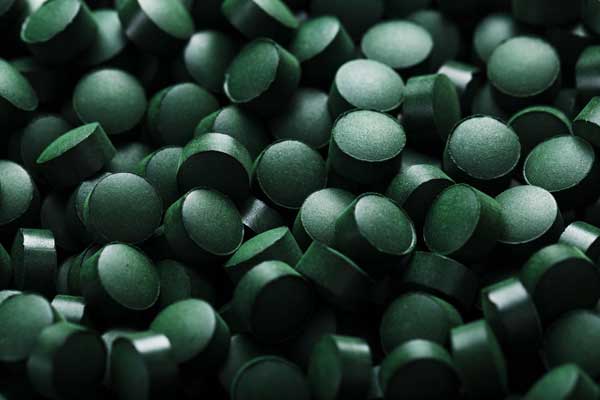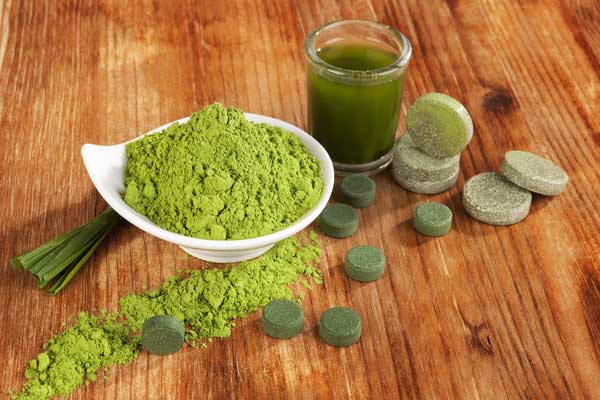Have you ever considered taking a tablespoon of Spirulina before bed to support your kidney health? This humble superfood offers a range of science-backed benefits that protect the kidneys.

What is Spirulina?
Spirulina belongs to a family of organisms called cyanobacteria, also known as blue-green algae. It’s not a plant but a type of tiny algae that produces oxygen through photosynthesis. One of Spirulina’s key components is chlorophyll, which plays a vital role in alkalizing the body.
Spirulina is rich in B vitamins, zinc, magnesium, and other minerals. It’s praised for its potential to prevent or treat high cholesterol, hypertension, diabetes, depression, malnutrition, and more. Research shows it may strengthen the immune system, liver, and kidneys.
Let’s explore some exciting discoveries about Spirulina’s health benefits.
Spirulina Lowers Blood Sugar
Animal studies reveal Spirulina can significantly reduce blood sugar levels, even outperforming medications like Metformin. Managing blood sugar is crucial for diabetes prevention and kidney health.
Spirulina Detoxifies From Toxins
Spirulina effectively eliminates heavy metals like arsenic from the body. Arsenic exposure can severely damage the kidneys and liver. Spirulina offers protective effects against this toxin.
Powerful Anti-Inflammatory
The antioxidants in Spirulina can substantially decrease inflammation. Chronic inflammation is detrimental to kidney health.
Lowers Blood Pressure
Spirulina may reduce blood pressure by increasing nitric oxide production to relax blood vessels. This is beneficial for reducing hypertension risk.
Protects Kidney Cells
Recent research discovered Spirulina shields kidney cells from free radical damage. It prevented kidney injury in rats given an antibiotic that induces oxidative stress similar to that seen in kidney disease. Scientists believe this kidney-protecting effect is due to increased nitric oxide production.

Spirulina Dosage
The optimal daily Spirulina dosage ranges from 1-8 grams. But for kidney health, it’s wise to stay on the lower end, around 1 tsp, due to its high protein content. Always get your doctor’s guidance before starting supplementation.
Spirulina Forms and Quirks
Spirulina is available as capsules, tablets, powders, and in some foods and drinks. An interesting side effect: it can temporarily turn your mouth and urine green. This is harmless.
MCT Oil for Kidney Health
MCT oil is another supplement that science indicates may support kidney function. Derived from coconut oil, MCT oil contains unique fats called medium-chain triglycerides. Your body can quickly use these for energy without spiking insulin.
Let’s explore some research on MCT oil’s kidney benefits:
Enhances Insulin Sensitivity
Studies demonstrate MCT oil can improve insulin sensitivity, which is vital for diabetes prevention and management. Uncontrolled diabetes is the leading cause of kidney failure.
Promotes Weight Loss
MCT oil enhances satiety and burns fat through its influence on metabolism and hormones. Obesity severely impacts kidney health. Losing extra weight can reduce kidney disease risk.
Powerful Anti-Inflammatory
MCT oil is packed with antioxidants that fight inflammation. Chronic inflammation contributes to kidney damage.
MCT Oil vs Coconut Oil
While MCT oil and coconut oil share similarities, MCT is a more concentrated form composed entirely of medium-chain triglycerides. Coconut oil contains 45-65% MCTs. Research shows coconut oil’s benefits stem mainly from its MCT content.
MCT Oil Dosage
The standard MCT oil serving is 1 tbsp (15 grams). But studies indicate 5-10 grams daily provides health advantages. Start with 1⁄2 tbsp and slowly increase to avoid stomach upset.
Resveratrol for Kidney Health
Resveratrol is the potent antioxidant in grapes and wines responsible for their health benefits. For kidney health, studies show resveratrol supplements may:
- Lower glucose, insulin, cholesterol, triglycerides, creatinine and BUN
- Reduce albuminuria and oxidative kidney damage
- Improve kidney function
- Protect kidneys by increasing nitric oxide
Research typically uses resveratrol doses of 150+ mg per day. Moderate 500 mg daily doses seem sensible. Consult your doctor before using resveratrol supplements.
The Way Forward
Managing kidney disease requires a steady, cautious approach. Begin with one new supplement at a time, in small doses, monitoring how you feel. Record your progress. Supporting your health is a lifelong journey.
